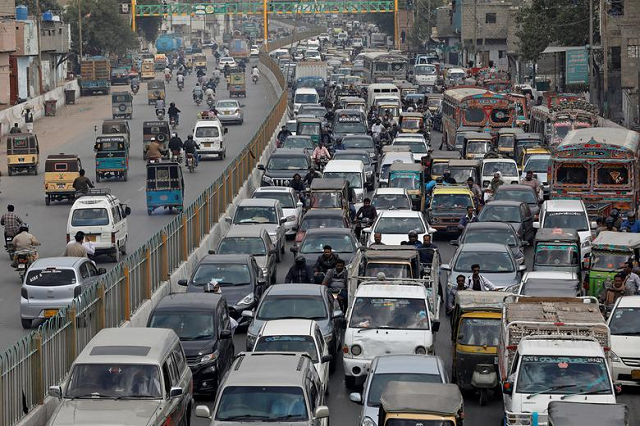
oad accidents have followed an upward trajectory in Karachi, where the Road Safety Education Wing (RSEW) of the Traffic Engineering Bureau (TEB) has been inactive since the past ten years. With experienced officers and funds unavailable, no road safety awareness campaigns have been conducted among students or commercial drivers to promote traffic rules and regulations.
According to information received by The Express Tribune from various sources, the RSEW was established as part of the Karachi Development Authority (KDA) in 1986. Training workshops were organized for school teachers, students and commercial drivers while video messages were aired on Pakistan Television (PTV) by the department, which operated for nearly 15 years.
However, due to a lack of funding, the department steadily declined. Currently, funds amounting to Rs0.1 million allocated by the KDA for the current financial year, have still not been released. In the past, this department had a team of seven experienced officers and staff, out of which only two officers are left while only one training program could be organized for Traffic Police personnel.
Officials of the TEB confirmed that road accidents were on the rise due to lack of road safety education among citizens, who frequently violated traffic rules through wrong-way movement, speeding and breaking signals, all of which had now become a common occurrence.
Former Regional Support Officer of the TEB, Zafar Ehsan, revealed that the sessions organized by the RSEW included information on zebra crossings, signals, and pedestrian bridges. "Apart from this, brochures with road safety messages were also distributed. In 1990, PTV produced two documentaries, "Zara Dekh Ke" and "Traffic Rules and Our Responsibilities", for which I also served as the scriptwriter. These documentaries continued to be broadcast until the late 1990s. The TEB had also made 5- to 10-second-long video clips with road safety messages. However, this initiative could not continue for long due to funding shortages," claimed Ehsan.
Commenting on the matter, Syed Amir Hussain, Project Coordinator at the NED University felt that all the awareness campaigns conducted on road safety in the past had proved to be nothing more than photo sessions due to lack of continuity and adherence to approved methods. "Road safety education is now being taught through a holistic approach all over the world. Due to a rise in accidents throughout the city, it has become imperative to teach road safety to drivers, pedestrians, special and visually impaired people," urged Hussain.
Hussain further believed that teachers in schools must also play an active role by conducting debates and painting competitions related to road safety among children. "Road safety education must be imparted among private companies, owners of water tankers, goods and public transporters so that they do not put pressure on their drivers to overspeed. Similarly, school and private institution owners should refrain from being overly strict with their van drivers and employees over punctuality. They should consider traffic congestion and other factors, and allow flexibility," said Hussain, who also felt that social media was a good tool to spread awareness on the topic.
Concurring with Hussain, Nadir Ali, leader of the Sindh Blind Action Committee (SBAC), confirmed that road safety education was not provided to ordinary citizens, let alone the visually impaired. "There are no facilities available for blind individuals, such as tactile tiles at bus stops or pelican signals for crossing roads. Visually impaired individuals require assistance to cross the roads. We must offer road safety education to all citizens including the differently-abled individuals," said Ali.

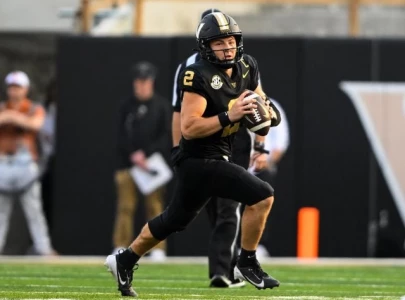

1734591991-0/Untitled-design-(52)1734591991-0-165x106.webp)


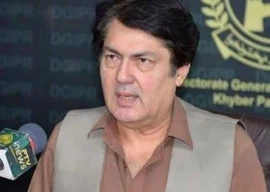

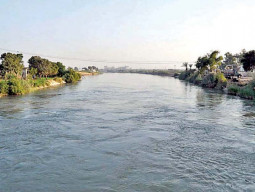
1726722687-0/Express-Tribune-Web-(9)1726722687-0-270x192.webp)
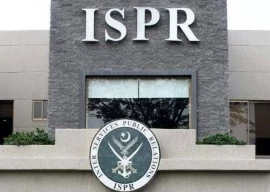
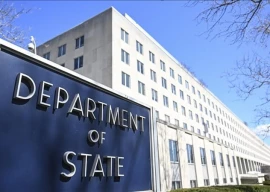
1734468458-0/Copy-of-Untitled-(50)1734468458-0-270x192.webp)
1734511806-0/Untitled-design-(5)1734511806-0-270x192.webp)
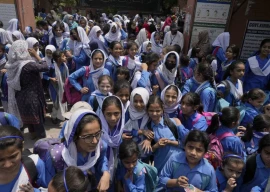


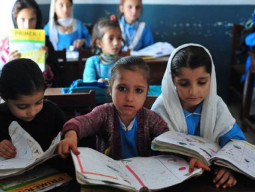






COMMENTS
Comments are moderated and generally will be posted if they are on-topic and not abusive.
For more information, please see our Comments FAQ